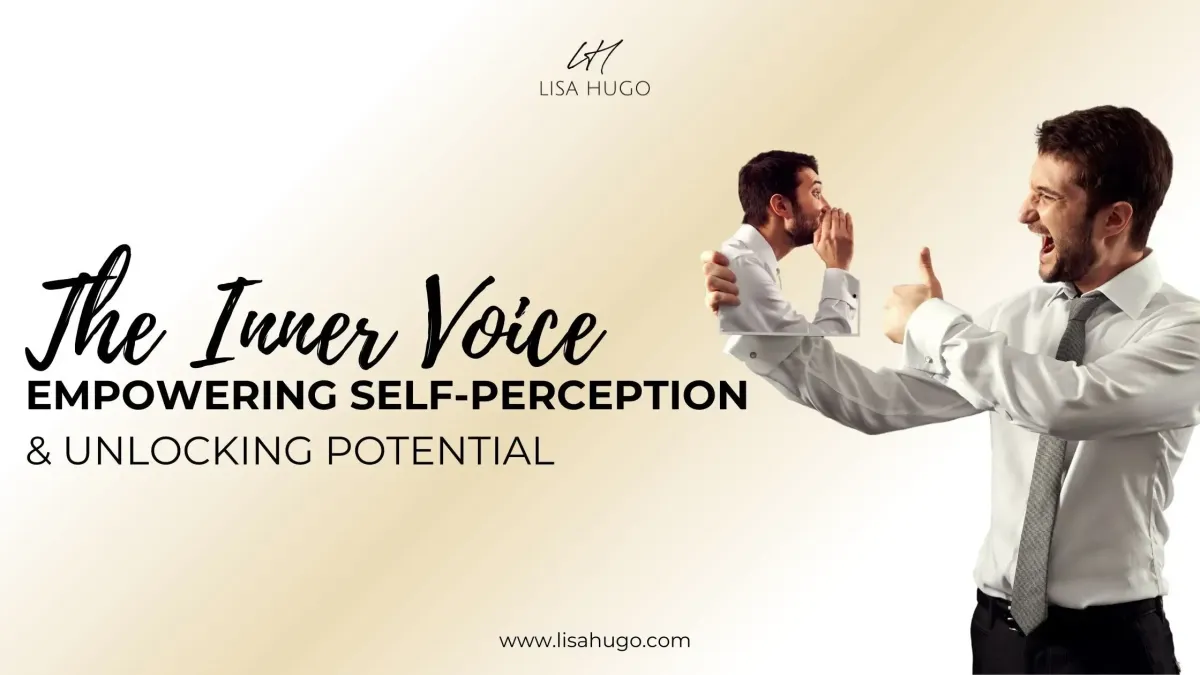
How to Use Your Inner Voice to Unlock Your Potential

The inner voice, often referred to as self talk, is a profound internal dialogue that shapes our self-perception, influences our decisions, and can significantly impact our personal and professional lives. Let’s get to know our inner voice, its potential negative impacts, and strategies to transform it into a force for positive change and growth.

Understanding the Inner Voice
Our inner voice is a constant stream of thoughts that reflects our deepest beliefs, fears, and aspirations. It's shaped by our experiences, cultural background, and the significant influences in our lives. This inner dialogue can be both a critic and a cheerleader, significantly affecting how we perceive ourselves and our abilities.
I’m no medical professional, so my knowledge here is limited. But I know that cognitive behavioural and neuroscience perspectives can help us understand the inner voice further. These fields offer insights into how our brains process experiences and form narratives about ourselves. Mindfulness and cognitive-behavioral therapy (CBT) practices provide practical tools for observing and influencing this inner dialogue, suggesting that with awareness and practice, we can shift our internal narratives towards more constructive and empowering ones.
The Negative Impact of the Inner Voice

A critical inner voice can be debilitating, leading to self-doubt, anxiety, and an inaccurate assessment of our capabilities. It can hold us back from taking risks, embracing new opportunities, and achieving our full potential. The inner critic often focuses on our shortcomings, ignoring our strengths and successes, which can distort our self-image and limit our growth.
Research in psychology highlights the link between negative self-talk and conditions such as depression and anxiety, empasising the importance of addressing and transforming this inner critic.
Strategies to reduce the negative impact of the inner voice involve challenging the patterns through techniques like journaling, mindfulness, and therapy. By recognizing and disputing these tenendcies, it’s possible to lessen the grip of the inner critic, and pave the way for a more balanced and compassionate self-view.
Transforming the Inner Dialogue
Transforming a negative inner dialogue requires conscious effort and practice. Techniques use CBT,, mindfulness, and positive affirmations that can help reshape our inner voice. Recognizing when our inner critic is at play and consciously choosing to focus on more supportive and constructive thoughts is the first step towards transformation.
For each type of cognitive distortion, here's an alternative, more balanced or positive thought:
1. Catastrophizing: "Even if things don't go perfectly, I can handle it and learn from the experience."
2. Overgeneralizing: "Sometimes I face setbacks, but I also have many moments of success that I should remember."
3. Personalizing: "Many factors contribute to a team's performance; it's not solely on me. I'll focus on how I can improve."
4. Filtering: "While I acknowledge my mistakes, I also recognize my successes and the effort I put in."
5. Should' Statements: "I aspire to do better, but I also understand that being human means being imperfect."
6. All-or-Nothing Thinking: "Not being perfect doesn't mean failure; it's an opportunity for growth and learning."
7. Mind Reading: "I don't know what others are thinking, and assuming the worst isn't helpful. I can ask for feedback instead."
8. Fortune Telling: "I can't predict the future, but I can prepare and do my best. Whatever happens, I'll cope and learn."
9. Magnification and Minimization: "I'll keep things in perspective, acknowledging both my strengths and areas for improvement without overemphasizing either."
10. Labeling: "Defining myself by a single mistake or flaw is unfair. I am a complex person with many qualities."

The Role of the Inner Voice in Personal Growth
Our inner voice can be a powerful tool in personal development. A positive and nurturing inner dialogue can boost our confidence, resilience, and motivation. By focusing on our strengths, past successes and by learning from our challenges and failures, we can nurture a growth mindset that propels us forward and encourages resilience and adaptability.
Set intentional goals and use positive self talk to navigate the challenges.

Fostering Self-Compassion
Self-compassion is key to moderating the tone of our inner voice. Treating ourselves with kindness, understanding, and forgiveness, as we would a close friend, can soften the inner critic and encourage a more supportive internal dialogue. Self-compassion promotes emotional well-being and resilience, enabling us to navigate life's challenges with greater ease.

Mindfulness Practices
Mindfulness practices can enhance our awareness of the inner voice, allowing us to observe our thoughts without judgment. Meditation and mindful breathing can help us detach from negative self-talk and redirect our focus towards more positive and constructive thoughts.

Building Resilience through the Inner Voice
A constructive inner voice can strengthen our resilience, enabling us to bounce back from setbacks and face challenges with confidence. If you have nurtured an inner narrative that emphasizes learning and growth, you will be able to maintain a positive outlook even in the most difficult circumstances.

Professional Implications
In a professional setting, the inner voice influences leadership, decision-making, and how we handle stress and pressure. Cultivating a positive inner voice can enhance our leadership qualities, improve our communication skills, and increase our overall effectiveness in the workplace.
Real-Life Transformations

There are countless stories of individuals who have significantly improved their personal and professional lives by changing their inner dialogue. Whether it's overcoming imposter syndrome, making bold career moves, or enhancing personal relationships, the power of the inner voice is evident in numerous success stories.
Transforming our inner voice from a critic to an ally can be a transformative journey that will lead to profound personal and professional growth.
